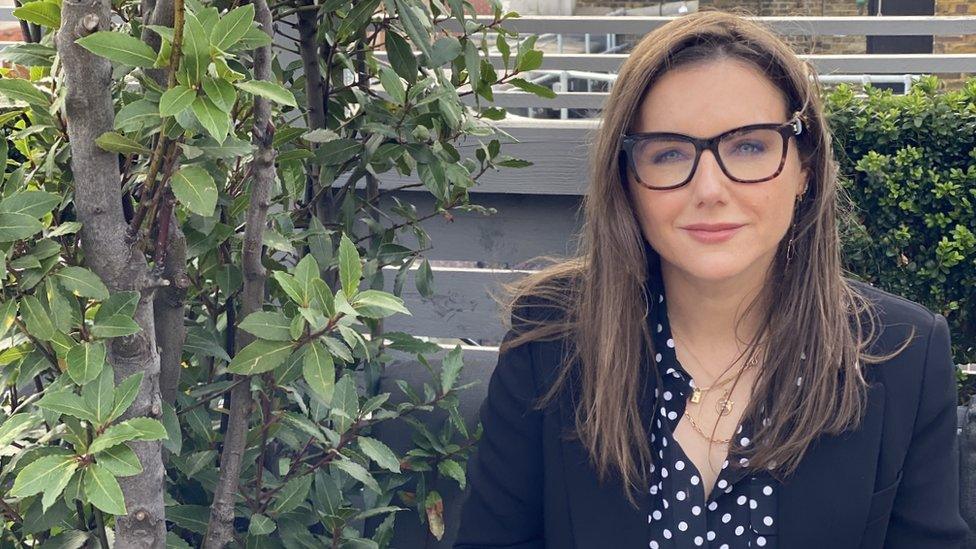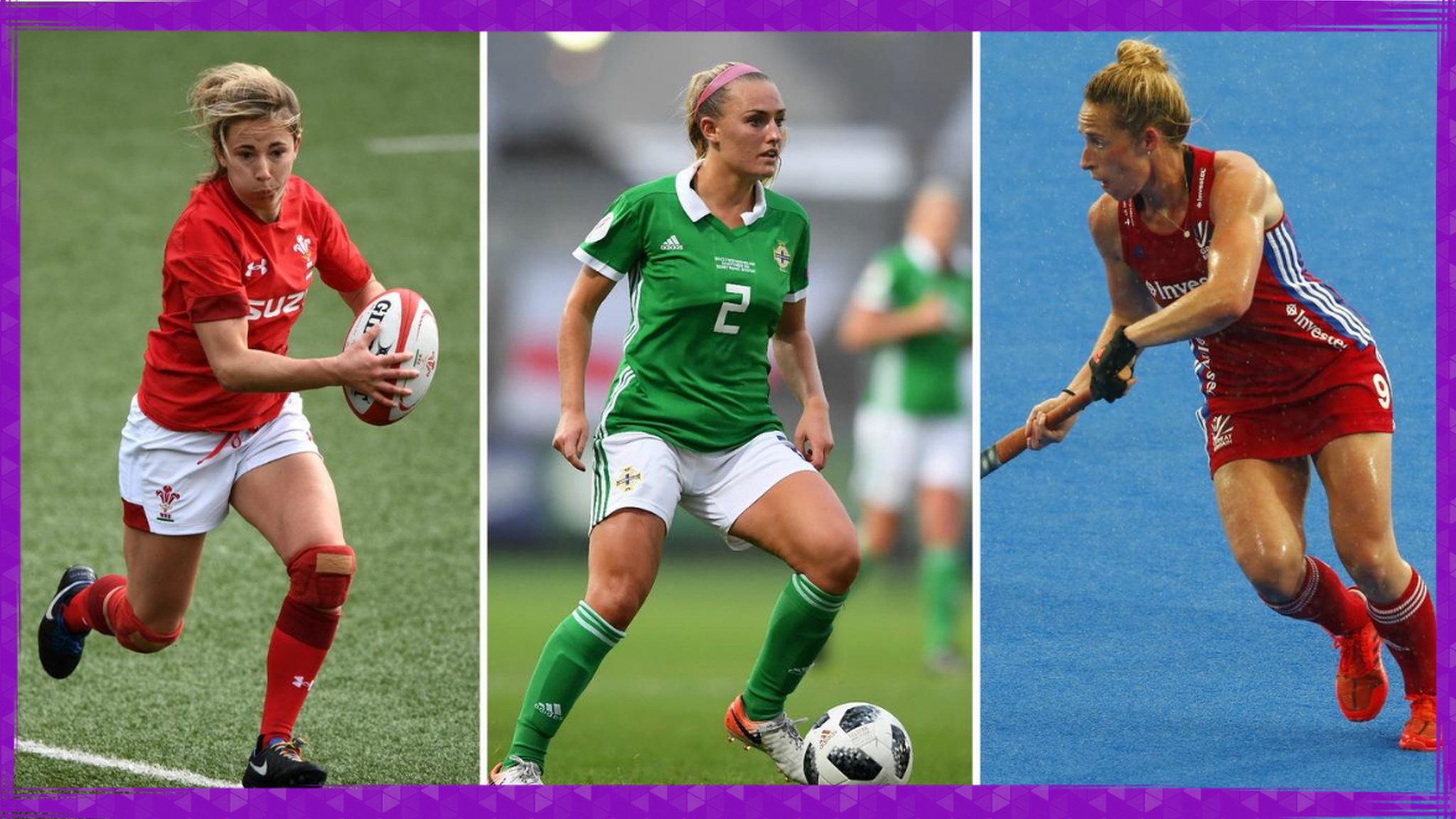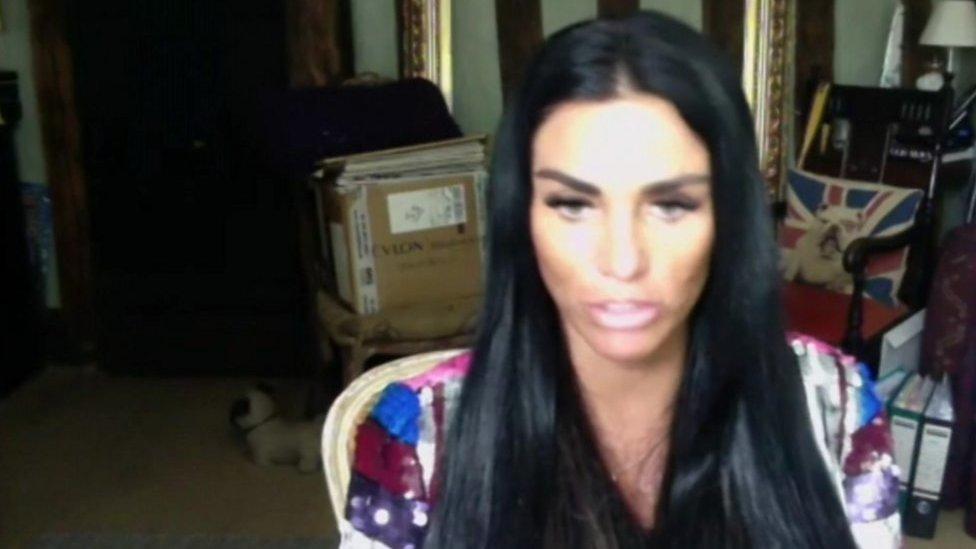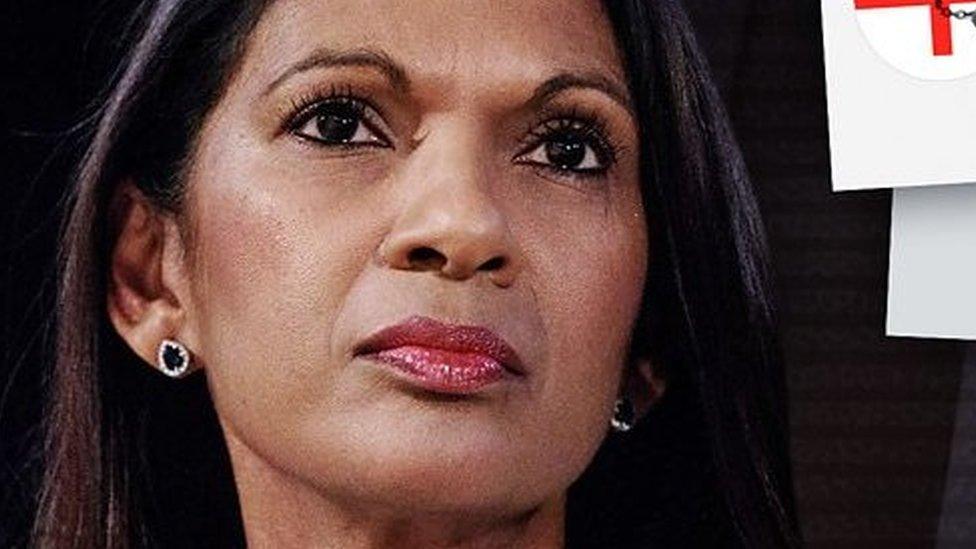Sali Hughes: I met the woman who trolled me online
- Published

A few weeks ago, in a chilly London plaza, I met a woman called Becky*. The smart, affluent-looking, 30-something mum smiled warmly as she approached me. We'd never met before. But until fairly recently, Becky had been trolling me online.
Imagine if a group of strangers spent up to 16 hours a day feasting over nasty and imagined details about your personal life and family, telling livelihood-endangering lies about your job.
That happened, and still happens, to me and many others on what's known as a "dragging" or "trashing" site.
If you search my name you'll find I'm a journalist. You'll see my posts about beauty and lifestyle all over Twitter and Instagram. But when Becky searched my name, alongside a cosmetic procedure, a link to the "trashing" site had come up as a result.
The lies about my personal and professional life spanned pages; talking about my children, my marriage and my mother who'd recently died of cancer.
False rumours and hurtful insults
The site is an online forum, dedicated to trashing the lives and reputations of people with a social media presence.
About a year ago, the insults, hurtful conspiracy theories and speculation migrated from that forum to a beauty industry gossip site.
A false rumour appeared, albeit briefly, suggesting that I had an undeclared financial relationship with a major brand. I decided I had to act.
I posted a video on Instagram, talking about the ceaseless trolling I - along with many others - had received on the site, how it threatened my livelihood, affected my mental health and hurt deeply those I love. Having watched that video, Becky stopped posting.
The Sali Hughes being denigrated online was not one I would recognise
A few months later, she wrote to me. And that eventually led us to meet, shivering, outside a cafe in Victoria, where she had agreed to be interviewed for an edition of File on 4 I was making about my experience of online abuse.
In her email to me, Becky had acknowledged there was "a lot of projection going on". And when we met, she spoke about how issues in her personal life had fed into what she wrote.
"I think what you see of influencers, people on the internet, media personalities is potentially only 40 seconds of content a day. It's very easy to fill in with your own narrative.
"For me specifically, I can say 100% what was going on in my own life is reflected in what I posted… it was nothing really to do with the content creator. It was what I filled in."
But while my name may have been on the posts, were the contributors like Becky really talking about me? The Sali Hughes that was being denigrated there was not one I would recognise.
Scant facts would be extrapolated into large fictions. Competition to come up with the juiciest speculation would lead to nonsense being accepted as fact, then more speculation built on top of that, until the person at the centre of the abuse seemed to be a fictional character with my name.
Impossible to win
When I met Becky outside the cafe I could tell we both felt nervous, and her voice broke as she told me she's a "normal person".
"I am. I'm a nice mum. I'm a good friend," she insisted. "I've been back to what I wrote, it was so nasty and I thought: how was I so blind to how thoroughly unpleasant I was being? Just knowing that I was any way involved makes me feel really upset at the thought of that."
One of the most upsetting aspects is that once targeted, it is impossible to not be found wanting - it simply isn't possible to win.
Put your kids in social media posts and you're exploiting them and invading their privacy. Choose not to, as I do, and you're clearly never with them, always palming them off on others, marrying the love of your life merely to nab a free nanny.
Post too often and you're a narcissist, post too little and you're lazy. Ignoring allegations is to tacitly plead guilty and put an entire career at risk, confronting them head on is to amplify them, play for attention and waste your time "when you should be looking after your kids" (one of their comments on my Instagram at the time).
Part of the problem with getting trolls to understand the impact of their abuse is often they convince themselves - and each other - that they're the good guys, cutting through dishonest posts with the sword of truth.
"Oh, absolutely 100%," says Becky. "I think, you know, particularly with (commercial) partnerships, people are there saying: oh, you know, people are getting paid tons of money behind the scenes, not declaring ads properly."
There's a strict code of conduct and failing to declare paid-for posts online is something that needs to be effectively policed. But that's the job of the Advertising Standards Authority - to whom anyone can report behaviour that breaks the rules - and there's a process in place that gives those accused a right of reply.
Allow Instagram content?
This article contains content provided by Instagram. We ask for your permission before anything is loaded, as they may be using cookies and other technologies. You may want to read Meta’s Instagram cookie policy, external and privacy policy, external before accepting. To view this content choose ‘accept and continue’.
After I made my video, I received dozens of messages from people telling me they were now on medication or in therapy as a result of the treatment they'd received on the same site.
Somebody else told me they'd developed agoraphobia, another that she'd even had suicidal thoughts. Paranoia is evidently a common effect in victims, thanks to the anonymity afforded to online trolls. I found myself feeling scared to go out because I didn't know who might be watching me.
Despite it all, I respected Becky's bravery and honesty in speaking to me. But if we're speaking of honesty, the truth is my sympathy was limited. Because Becky, albeit having escaped the world of online abuse that had sucked her in, still represented to me something deeply painful, unfair and ultimately mystifying.
Why would people devote so much of their time insulting and lying about someone they don't even know? If they don't like me - which of course is absolutely fine - why didn't they just unfollow me?
"It was a way of me trying to solve my own problems," reflected Becky. "It's actually nothing to do with you."
Before leaving, she shrugged and added: "It doesn't make sense to me either".
Sali's story is on File on 4, Tuesday 6 October 2000 BST on BBC Radio 4 and afterwards on BBC Sounds.
*real name has been changed.
- Attribution
- Published10 August 2020

- Published2 July 2020

- Published11 May 2020
